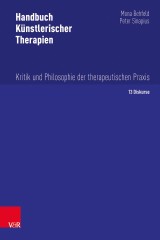Details

Melanchthon and Calvin on Confession and Communion
Early Modern Protestant Penitential and Eucharistic PietyRefo500 Academic Studies (R5AS) 1. Aufl.
|
130,00 € |
|
| Verlag: | Vandenhoeck & Ruprecht |
| Format: | |
| Veröffentl.: | 18.01.2016 |
| ISBN/EAN: | 9783647550411 |
| Sprache: | englisch |
| Anzahl Seiten: | 362 |
Dieses eBook erhalten Sie ohne Kopierschutz.
Beschreibungen
Melanchthon and Calvin were late medieval people, stemming from a world of order and unity, and at the same time they fully lived in the early modern world, in which everything was changing. In this new world they committedly, enthusiastically, and restlessly sought to introduce some order, in theory as well as practice. The sixteenth-century church was governed by multiple coercive constructions and systems. Did the two Reformers really succeed in disconnecting themselves from them, and to what extent did they connect to, for example, the existing forms of eucharistic piety?The established church had come under serious criticism, and people were massively turning their backs on the less than attractive ecclesiastical practices—something connecting that era to ours. In these highly turbulent and suspenseful 1520s, when it was not yet clear whether the ten-year-old evangelical movement in Germany was still viable, Melanchthon tried to introduce at least some order into the chaos by means of a confession accompanied by a church order. As it turned out, the new doctrine on 'Christian freedom' and 'justification by faith alone' was easily interpreted in a one-sided manner. Through a careful analysis of the sources, Herman A. Speelman examines Melanchthon's church visitations in 1527 and Calvin's five attempts to shape the modernisation of ecclesiastical life. In addition to the gospel, also penance and the preaching of the law received a place in the Protestant liturgy and spirituality.Melanchthon's and Calvin's contributions were not only to have an enormous impact on the theological evolutions in the evangelical movement in Europe, but they also proved to be of eminent importance for the way in which the new doctrine was given meaning in practice. Their instructions continue to be highly influential in large parts of Europe today.
Dr. Herman A. Speelman is Postdoctoral Research Fellow in Early Modern Reformed Theology at the Theological University of Kampen, the Netherlands.


















